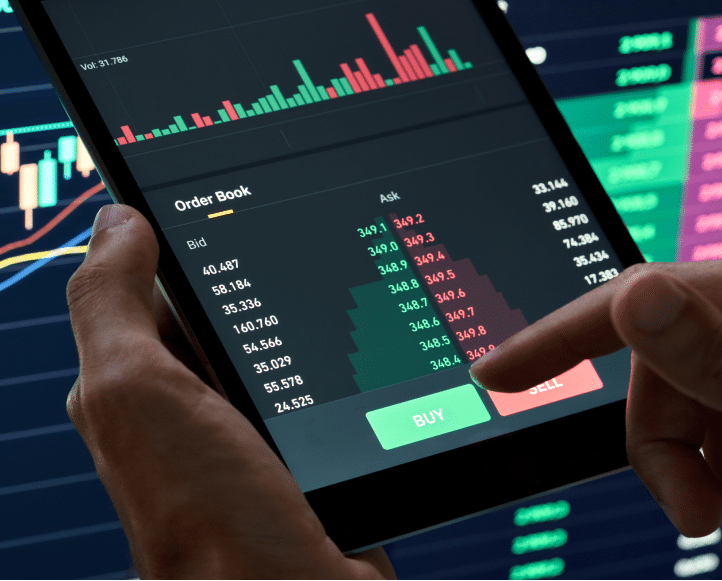
Understanding Crypto Futures Trading
Crypto Futures Trading is becoming increasingly popular in the world of digital finance. With the rise of cryptocurrencies, the trading landscape has transformed, presenting new opportunities and challenges for investors. Among various methods of trading cryptocurrencies, futures contracts stand out due to their unique features and profit potential. In this comprehensive guide, we’ll explore what crypto futures trading is, how it works, the strategies traders can employ, the risks involved, and tips for success in this dynamic market. To explore related stocks and indices, you can visit Crypto Futures Trading https://vw.investorideas.com/TSS/Stock_List.asp.
What are Crypto Futures?
Crypto futures are contracts that allow traders to speculate on the future price of a specific cryptocurrency. Unlike traditional spot trading, where you buy or sell crypto assets immediately, futures contracts enable traders to commit to buying or selling an asset at a predetermined price on a specific date in the future. This mechanism enables businesses and investors to hedge against price volatility and manage risk effectively.
How Does Crypto Futures Trading Work?
When you enter a futures contract, you agree to buy (or sell) the underlying cryptocurrency at a set price for a specific future date. The contract itself does not require owning the actual cryptocurrency; rather, it’s a legal agreement between a buyer and a seller. Here’s how it typically works:
- Opening a Position: Traders can either go long (buy) or short (sell) based on their market predictions.
- Margin Requirements: Futures trading usually requires a margin deposit. This is a fraction of the contract’s total value that must be held in your account to open a position.
- Leverage: Traders can use leverage to amplify their potential gains (or losses). For example, using 10x leverage means you only need to put up 10% of the position’s total value.
- Contract Settlement: At expiration, the contracts can be settled either in cash or through the delivery of the underlying asset, depending on the terms of the contract.
Key Advantages of Crypto Futures Trading
There are several advantages to trading crypto futures, making this method appealing to both novice and experienced traders:

- Hedging: Traders can hedge their investments against market volatility by taking positions that offset their spot market exposure.
- Potential for Profit: Futures contracts can be profitable in both rising and falling markets, as traders can go long or short.
- Leverage: Utilizing leverage allows traders to control larger positions with a smaller amount of capital.
- 24/7 Market: Unlike traditional exchanges, crypto futures markets operate around the clock, providing ample opportunities for traders.
Strategies for Successful Crypto Futures Trading
Successful trading requires a solid strategy. Let’s discuss a few common tactics used in crypto futures trading:
1. Trend Following
This strategy involves analyzing market trends to make informed trading decisions. It relies on identifying upward or downward trends and placing trades accordingly. Traders can use technical indicators, such as moving averages, to assist in their analysis.
2. Arbitrage
Arbitrage takes advantage of price discrepancies between different exchanges. Traders buy a cryptocurrency on one exchange at a lower price and sell it on another where the price is higher, profiting from the difference.
3. Scalping
Scalping is a short-term trading strategy that involves making multiple small trades throughout the day to capitalize on minor price fluctuations. This strategy requires quick decision-making and a solid understanding of market movements.

4. News Trading
Cryptocurrency markets can be highly sensitive to news and events. Traders using this strategy will monitor news outlets and market sentiment to make trades based on anticipated reactions to news developments.
Understanding the Risks Involved
While crypto futures trading presents several opportunities, it also carries significant risks. A few of the notable risks include:
- Market Volatility: Cryptocurrencies are known for their price volatility. Sudden market moves can lead to substantial losses.
- Leverage Risks: While leverage can amplify profits, it also magnifies losses. Traders can lose more than their initial investment if the market moves against them.
- Liquidity Risk: Some futures contracts may have lower trading volumes, making it challenging to enter or exit positions.
- Regulatory Risks: The regulatory landscape for cryptocurrencies is constantly evolving and can impact futures trading significantly.
Tips for Success in Crypto Futures Trading
To navigate the complexities of crypto futures trading successfully, consider the following tips:
- Educate Yourself: Stay informed about the cryptocurrency market, trading strategies, and market developments. Continuous learning is essential for success.
- Start Small: If you’re new to futures trading, begin with small positions to gain experience without risking significant capital.
- Implement Risk Management: Use stop-loss orders and position sizing to manage your risk effectively. Never risk more than you can afford to lose.
- Emotional Control: Maintain discipline and avoid making impulsive decisions based on emotions. Create a trading plan and stick to it.
- Analyze Your Trades: Keep a trading journal to review your trades, learn from mistakes, and refine your strategy.
Conclusion
Crypto futures trading can be an exciting and potentially lucrative avenue for traders looking to capitalize on the volatility of the cryptocurrency market. By understanding the mechanics, strategies, and risks involved in futures trading, you can enhance your trading skills and improve your chances of success. Always remember that thorough research, sound strategy, and disciplined risk management are critical components of achieving long-term profitability in this market. As the landscape of cryptocurrency continues to evolve, staying informed and adaptable will be your greatest assets in navigating the thrilling world of crypto futures trading.
